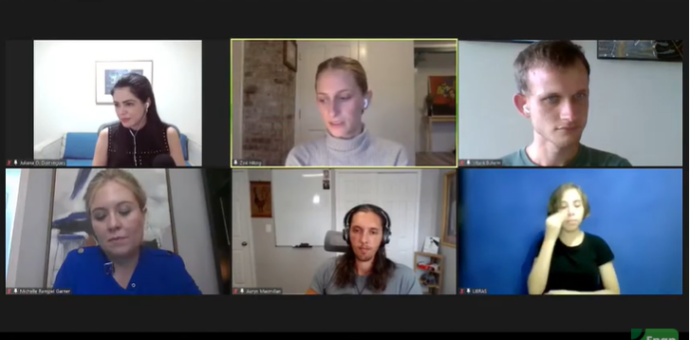One of the great challenges for society and the government is to encourage and finance initiatives that can positively affect the community. “The government needs to guarantee public goods, encourage investments and not leave aside projects perceived as less urgent”, said the National Consumer Secretary of the Ministry of Justice and Public Safety, Juliana Domingues. She was attending the event “Radical Futures: freedom to transform”, promoted by the National School of Public Administration (Enap). According to her, innovative thinking is fundamental to democracy.
Juliana moderated the panel on Financing Public Goods, which Ethereum creator Vitalik Buterin attended. He presented experiences related to the algorithm of quadratic funding and learning in the area. For Buterin, this model allows anyone to raise funds for an initiative they believe is a public good. One of the examples cited was the fundraising made by the community for the implementation of an improvement that reduces Ethereum rates.
Quadratic funding and democratic use possibilities
“Anyone can contribute to any project, such as crowdfunding, and a mechanism monitors the contributions”, Buterin noted. The algorithm is explained in detail in a guidebook prepared by the creator of Ethereum, which summarizes the calculation as follows: “for any project, take the square root of each payer’s contribution, add these values, and square the result”.
The model allows projects with more supporters to be more easily identified, which can attract more investors and thus provide greater chances of development.
The same algorithm can be used for voting and payments, for example, demonstrating that technological innovation is essential for democracy. “The tool allows fundraising for the most diverse goals, be it the creation of open-source software, a reliable news service, or even environmental protection”, Buterin pointed out.
According to Buterin, the idea is aligned with decentralized governance models. “This goes beyond technology. It’s a social transformation that has the potential to change the way we make many public decisions, far-reaching or not”, he said.
In the guidebook prepared by Buterin, he cites some successful tests with the quadratic model: “Small-scale tests have already been deployed. The Taiwanese presidential hackathon used quadratic voting to choose projects, Gitcoin Grants used quadratic funding to fund public goods in the Ethereum ecosystem, and the Colorado Democratic Party also experimented quadratic voting to determine its party platform”.







